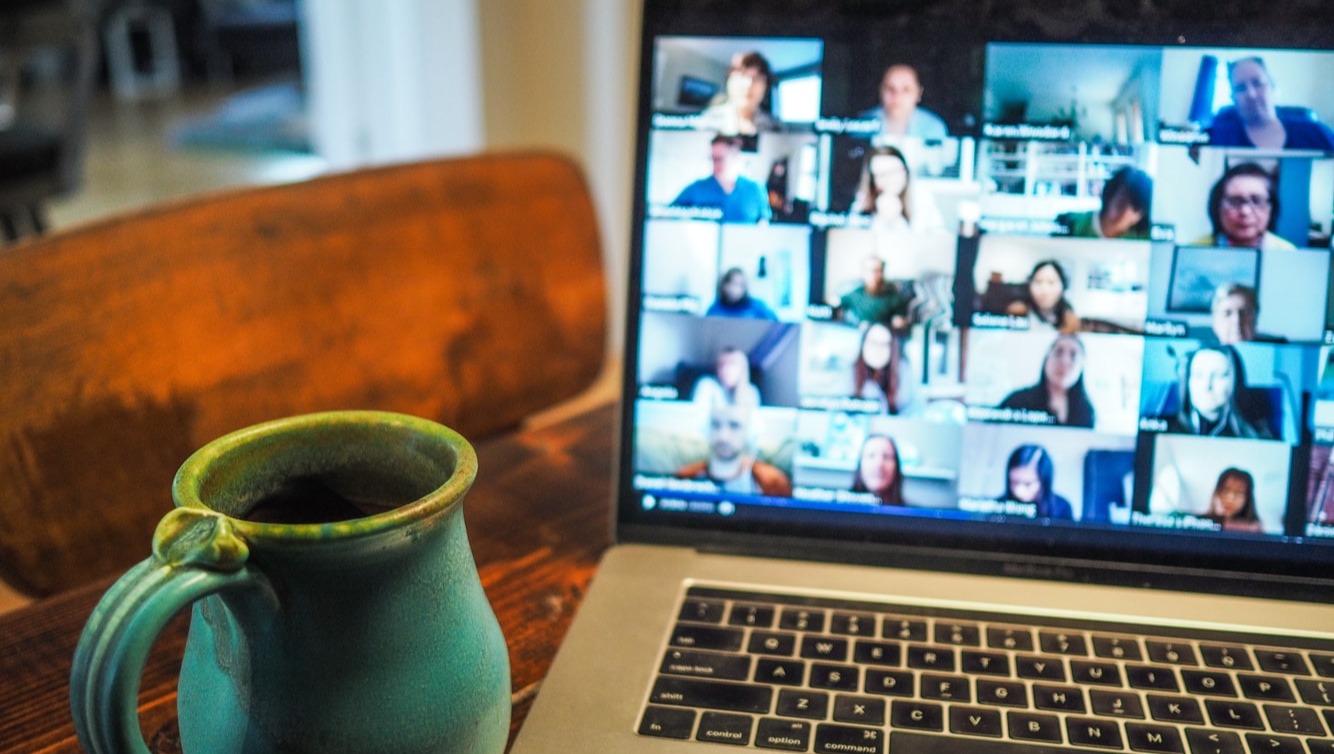.png)
As we publish this post on Wednesday 25th March, we are all adjusting to the lockdown scenario in the UK. While it’s impossible to escape the gravity of what we face collectively, many of us will still need to return to business - but it certainly isn’t as usual.
From a business perspective, things are changing fast. And the big question for B2B marketers is how to adapt as the pandemic progresses - in particular, whether it’s appropriate to even mention the ‘C-word’ in any communications, or to down-tools and no longer support the sales process.
Over the last few weeks, we’ve been talking to a number of business leaders, marketers and salespeople about the current climate, and what it might mean for B2B marketing strategies moving forwards.
We thought we’d share the key insights that have emerged - to provide some reassurance that it’s okay to carry on (as most are doing), but with some guiding principles to ensure you avoid the many pitfalls that may be lying in wait. If anything, hopefully it will provide some positivity and a brief respite from the seriousness of our current situation.
This post will cover how to balance your message with empathy and genuine value, when to adapt your proposition and some of the considerations of moving everything online. We’ll also outline the importance of staying visible, as well as look ahead to the recovery.
A connected economy
For the businesses most badly affected by the pandemic, minds are understandably a million miles away from sales and marketing right now. From airlines to coffee shops, the worst-hit are doing their utmost simply to survive, to pay their people and to stay afloat.
It’s devastating to see some of the industries so core to our normal existence being hit so hard. The government has pledged to do ‘whatever it takes’ to ensure all businesses come through the pandemic intact - and hopefully it’s a promise on which they deliver.
Even for those more shielded from the impacts, the next few weeks and months promise to be anything but normal. Ours is a connected economy, and the knock-on impact will be keenly felt right across the business spectrum.
Some sectors, though, are doubtless better equipped to cope than others. The UK’s technology industry, for instance, which grew six times faster than the rest of the economy last year, is well placed to ride the storm.
While some tech businesses will have clients in harder hit areas (unlikely to be spending money), some are fortunate (albeit reluctantly) in that demand for their services has increased as a result of the virus. Think IT services that support remote working or business continuity.
It shows a glimmer of hope among the doom and gloom. Indeed in most cases, this period of uncertainty (just like Brexit before it) will present businesses with both challenges and opportunities.
Re-evaluating your message
Everywhere you look, businesses in all industries have been adapting to the COVID-19 crisis. We’ve seen Michelin-star restaurants offer home deliveries, gin distilleries switch to hand sanitiser production, and supermarkets providing dedicated shopping windows for the elderly.
It’s likely that B2B firms won’t need to pivot with such extremity, but now is definitely the time to adapt. Your clients’ needs and priorities will have shifted almost overnight, so it’s essential that you try to understand what’s changed and react accordingly.
If you don’t provide a service that can be genuinely helpful during this uncertain period, then focus on how you will be able to help businesses during the recovery. If you can't do either, then you will be found it if you try to exploit the crisis for your own self-serving needs..
We’ve also seen lots of companies offer products and services either at discounted rates or for free, especially in support of key workers and healthcare as a whole. This is great to see, but in doing this you should avoid any temptation to leverage PR from such gestures, as the goodwill could be mistaken for something else.
Indeed, now is absolutely not the time to look opportunistic or even be seen to be profiteering from the crisis. Early on we saw countless examples of marketers trying to bend their message or create content with painfully tenuous links to the Coronavirus. Unless you have genuinely helpful advice to offer, then you must avoid it all together - it is a risk and could do your brand a lot of damage.
In fact, we’re taking a risk ourselves in even writing this blog. We know some people may see us as trying to jump on the bandwagon too. But following the ongoing and regular conversations we’re having with clients, partners and agencies - we felt we had some value to add, and we felt compelled to share. In fact, we would have been playing it safe to write something completely non-related.
And there's a danger in doing that too. You can look just as insensitive to ignore the crisis - and in truth, people don't really want to hear it at this point in time..
The biggest challenge is how fast everything is moving. We have re-written this post several times already because every day the situation changes. Nobody wants to get it wrong, but there is little sympathy for such mistakes at the minute, so you need to be cautious.
But while all our radars for ‘bandwagoning’ or 'ambulance chasing' are on high alert, we’re equally all in need of advice and examples of what others in similar difficult situations are doing. The business community has to pull together at this time and be helpful to each other.
Whether we’re in the middle of a global pandemic or normal life as we know it, any communication should be empathetic, authentic and helpful. If you’ve nothing valuable to say, don’t say it. Never has this been so important.
Above all, our advice would be to focus marketing - your communication experts - on helping customers solve the challenges that have resulted from the pandemic. That is what is most important right now.
A new environment for sales and marketing
So let's talk channels. Three of the activities companies rely on for their go-to-market are networking, telemarketing (inside sales) and face-to-face events - and all are mostly redundant in the current climate.
Obviously, all face-to-face events have been cancelled or postponed, networking opportunities have largely suffered the same fate, and for inside sales teams, the vast majority of the contacts you need to speak to are now working from home. Not ideal if you rely on office numbers to reach them.
The chink of light here is that if you don’t focus on public services, most of your audience will be more available than ever - freed from their commute and with perhaps clearer diaries than they’ve ever known.
When focused on work and not distracted by news updates or social media (or kids!), your prospects are still there, and with more time for you than ever. So what needs to change is your strategy for reaching them.
With a limited arsenal of sales and marketing tactics at your disposal, businesses are being increasingly pushed down digital channels. Of course, most sales and marketing teams have embraced digital already - but now it’s virtually the only option on the table.
Now is the time to focus on email, social media and search. And to create content that works best in these channels, such as webinars, online conferences, videos, guides and blogs. If done well, you will still be able to engage your customers to demonstrate your willingness to help..
Again, it’s fair to point out that some customers simply won’t be buying services during this period. Even so, people will have more time to consider new ideas - with a view to preparing themselves to hit the ground running when the recovery starts.
The future: Stay visible and prepare for the recovery race
The impact of the pandemic has created massive change on so many levels - and those familiar with the Kubler Ross model (stages of change) will know that any huge transition like this is typically met with denial, frustration and depression.
.jpeg?width=1280&height=720&name=Show%20must%20go%20on%20(1).jpeg)
Before lockdown, most (UK & US) people we had spoken to had moved through this curve quickly and were in the acceptance and experimentation stages regarding the pandemic. While Monday's news may have triggered a backwards step in the UK, we will adapt again - because we are resilient.
More importantly though, as the Kubler Ross chart shows, it means many people will return to acceptance - no matter how difficult - and want to know how to deal with the situation. So if you are in a position to help, you should.
The sentiment among those we’ve spoken with is that businesses must focus on the medium to long-term picture, ensuring readiness to hit the accelerator when things start to return to normal.
And while the focus is very much on supporting existing customers right now, they want to stay visible and proactive in the short-term - so that they don’t get forgotten about or lose ground to more conspicuous competitors.
But it's also really important to be seen by those who count on you. It's reassuring for customers to see that you are surviving, because closing-up shop sends out the wrong message.
Compared to previous recessions at least, the underlying economy was in a relatively strong position pre-virus. Perhaps a more upbeat and hopeful outlook is that things will gather pace once lockdowns are lifted - as businesses focus hard on growth and sales to try and recover any losses as quickly as possible.
Many businesses will emerge with additional government debt to pay off, and an accumulation of deferred tax liabilities. Further cost-cutting at that point just won’t be an option, and firms will seek to sell their way out of the situation.
We’re here to help you do marketing that actually works.
Related insights



